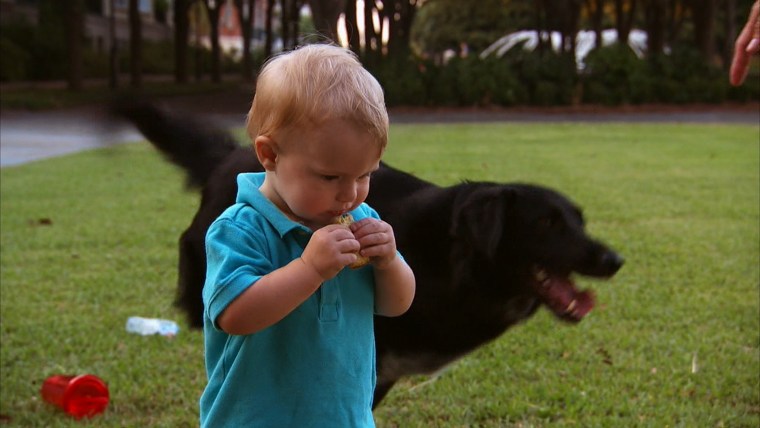Parents might think that they’re making healthy choices for their children by feeding them food specially made for infants and toddlers, but a new study in “Pediatrics” finds that these products often contain too much sugar or sodium.

Researchers from the Centers for Disease Control and Prevention (CDC) examined the nutritional information of 1,074 infant and toddler food products, looking specifically at sugar and sodium content. Of the 79 infant mixed grains and fruits, almost half, 41, contained one added sugar; 35 of these had 35 percent of their calories coming from sugar.
Toddler foods fared poorly, with 72 percent of toddler dinners containing more than 210 mg of sodium in each. About half the foods made for toddlers—including vegetables, wheat or whole grain-based crackers, chips, sticks, or puffs—contained the sodium equivalent of plain potato chips.
“It can be concerning if there is more [sodium and sugar] in the foods than what a parent expected to be there," says Leslie Bonci, director of sports nutrition at UPMC Sports Medicine, who was not involved in the study.
Toddler foods loaded with sodium create a problem because during the first year, children should only consume 120 to 370 mg of salt a day, says Bonci. Snacks or meals containing 210 mg of salt or more make up a hefty portion of a child’s recommended sodium intake.
“It would be pretty easy to go over the limit of what the [child] needs to have,” says Bonci.
A child's daily sugar consumption falls under carbohydrate guidelines:
- From one to six-months, a child should have 60 grams of carbs
- From seven to 12-months, 95 grams a day
- One to three-years-old, 130 grams a day.
In addition to grains, sugar, fruit, vegetables, and dairy all have carbohydrates. Sugary foods mean that kids easily exceed the daily limits.
There aren’t conclusive studies that find that introducing sugar too early leads to an increased likelihood of diabetes, Bonci, says, but giving infants and toddlers too much sodium and sugar makes for picky eaters.
“If my first palate pleasers are salt and sugar I am probably not going to have broccoli,” Bonci says.
In response to the study, the Grocery Manufacturers Association of America issued a statement:
“We are concerned that the study does not accurately reflect the wide range of healthy choices available in today’s marketplace that parents can turn to for feeding their infants and toddlers because it is based on 2012 data that does not reflect new products with reduced sodium levels, and it could needlessly alarm and confuse busy parents as they strive to develop suitable meal options that their children will enjoy. GMA continues to recommend that parents with questions or concerns about a child’s diet should consult their local health care provider.”
While the best option might be for parents to make their own food, Bonci knows most busy parents struggle with this. She suggests that parents take an extra five or 10 minutes to read the labels—if fruit snacks contain too much sugar, for example, perhaps serving apple slices or raisins is be the healthier choice.
“It is important for parents to look labels select accordingly,” she says. “I think we need to be more selective consumers when it comes to food.”